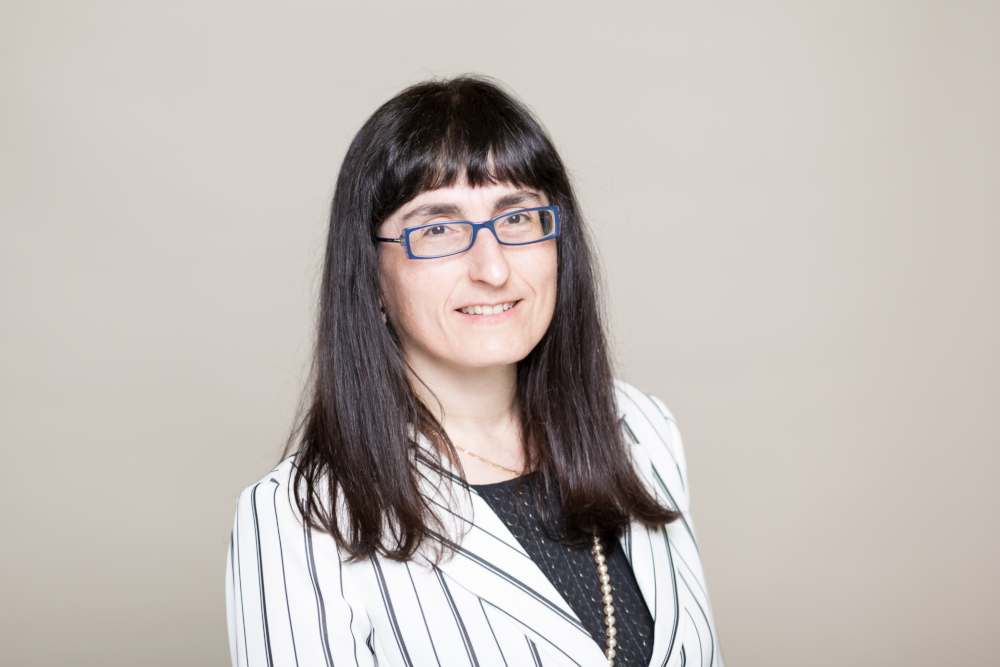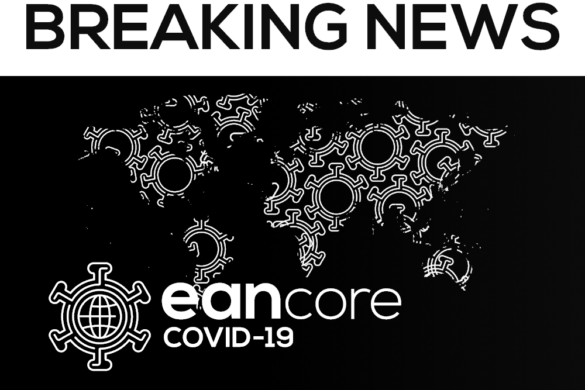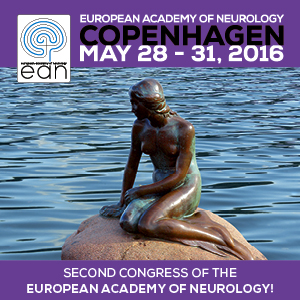
Prof. Elena Moro, EAN Treasurer

Maeve Cusack, Board Member of the European Institute for Women’s Health (EIWH)
http://www.eurohealth.ie/
Prof. Elena Moro (EM): Dear Maeve, could you explain to readers of EAN Pages what the European Institute for Women’s Health is about, what are its main objectives and above all your role in the EIWH?
Maeve Cusack (MC): Founded in1996, the European Institute of Women’s Health (EIWH) is a non-governmental organisation (NGO) and registered charity. The Institute uses an evidence-based approach to advocate for equitable, sex- and gender-sensitivity in health policy, research, promotion, treatment and care. It also promotes biomedical and socio-economic research that addresses sex and gender-based differences to ensure access to quality treatment and care for women across their lifespan. Over the years, we have worked closely with the European Commission, Parliament and the World Health Organisation to place gender mainstreaming on the health and research agenda.
Investing in women’s health and well-being requires a life-course approach. The EIWH promotes action early and at critical points to ensure health and well-being from birth through to older age. Available evidence must be used to best identify entry points for various interventions and services, both for the wider population and for individual health. Specific consideration needs to be acknowledged for girls and women at particular points in their life and understood by respective stakeholders. Collaboration with other sectors (such as education, technology, the social sector, employment and justice) and engaging with girls and women themselves are key to successful policy formulation and implementation.
The EIWH has a Board of Directors and an Expert Advisory Board. The extensive network of multinational academics, NGOs, gender experts. medical and health professionals and national focal points help guide the EIWH in policy development.
The EIWH has a dedicated secretariat team under the leadership of the Director General. The team has a variety of skills including, political science, research, policy development health economics, ICT and the social sciences. The secretariat produces the EIWH policy and strategy and have specific expertise including preparing the EIWH policy briefs series on gender and chronic diseases, and organising roundtables and seminars on topics relevant to women’s health. The secretariat also provides support for the contributions to several advisory groups.
EM: In your opinion, what are the current and urgent priorities to foster in Europe concerning women’s health in Neurology?
MC: In Europe, women outlive men by on average more than five years, but their healthy life expectancy advantage is less than nine months. Biological and social influences (sex and gender) are critical determinants of health. Women face higher rates of diseases, such as in breast cancer, osteoporosis and auto-immune diseases than do men. Other diseases affect men and women differently, including diabetes, depression and cardiovascular disease. Women do not present the same for conditions and respond differently to treatment than do men.
Women traditionally have been underrepresented in clinical trials and consequently the evidence base has been weaker for them. This applies also to older people. Integrating the biological and social dimension in research and innovation is key to improving the scientific quality and societal relevance of the produced knowledge, technology and innovation.
Neurological diseases affect more women than men and it is alarming to see that more women are dying from neurological diseases than before. It is now clear that gender specific neurologic issues vary through a women’s life cycle. For instance, we know that hormonal and reproductive changes have an impact on diseases such as migraine, epilepsy, multiple sclerosis and dementia. Neurological diseases are particularly disabling and distressing conditions that affect women’s mental health and their contributions to their family and society. Risk factors are also different between men and women.
The EIWH calls on the European Union to look at neurology through a gender-based lens. Neurological diseases are very costly and still under-investigated compared to other diseases such as cancer. As such, it is urgent to increase EU medical and social research to comprehensively and holistically address the burden of neurological diseases in women in Europe. A strong gender-based approach to tackling neurological diseases must be a European priority. A specific focus should be put on the medial evaluation of the diseases, their diagnosis, treatment and care to improve women’s neurological outcomes.
EM: How can the EAN help and contribute to the EIWH?
MC: The EIWH values EAN’s mission to increase neurological excellence in Europe. A first milestone in the EIWH work on women and neurodegenerative disease is the recent position paper ‘Women and Dementia: Addressing the disproportionate burden of dementia on women’. This paper gave a clear signal that women and dementia was still a neglected area and provided concrete policy recommendations to improve the situation. The EIWH will now continue to raise awareness about the specificities and burden of neurological diseases on women such as migraine and multiple sclerosis. As such, the organization is more than willing to link-up with clinicians, educators and scientists. The EAN can certainly be a facilitator.
The EIWH would be delighted to have the support of EAN as a member of our expert advisory board in promoting our Manifesto- Healthy Women Healthy Europe – and in creating awareness around unmet needs in relation to gender equity in health and the promotion of women’s health across the lifespan. https://eurohealth.ie/our-manifesto-for-womens-health-2018-a-background-briefing/
The EIWH would welcome the support of EAN for our upcoming European Parliament Women’s Health Information Day on Wednesday November 6th in Brussels. The event is a follow-up to the European Institute of Women’s Health (EIWH) anniversary conference in 2017 and the launch of its ‘Healthy Women—Healthy Europe’ Manifesto in 2018. The theme of the event is – Economy of Well-Being: Healthy Women—Healthy Europe. The EIWH Open Day will illustrate how a comprehensive, inclusive Europe must prioritise women’s health. The agenda will address unmet women’s health needs across the lifespan in Europe one of which is neurological conditions.
EM: What is your message for the European women neurologists?
MC: Working together we can make a difference and contribute to better diagnosis treatment and care for all women in Europe. There is much work to be done in this area. Women hold slightly fewer than one in three academic neurology positions. We would like to see more women encouraged and supported to become neurologists. Women neurologists are our natural allies in raising awareness and in supporting increased research and developing policy to address the gender specifics of neurological diseases.
We are very keen to work together on that front.
by Prof. Elena Moro, EAN Treasurer and EAN Board Member








